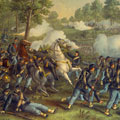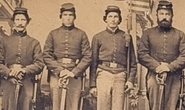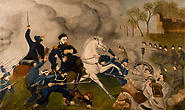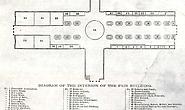This Means War
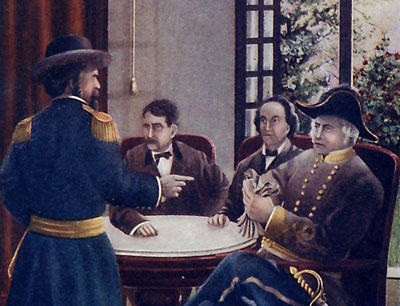
The moderate residents of Missouri were in a precarious position. Powerful political figures on opposing ends pulled Missouri in two directions. On one side, Missouri governor Claiborne F. Jackson, a Southern Rights proponent, determined to get Missouri out of the Union. He was matched by Unionist Frank Blair Jr., founder of the state's Republican Party, who stood resolute in his determination to keep Missouri from seceding. As tensions rose locally and nationally, passionate Union loyalists and Confederate secessionists declared their allegiances emphatically. However, those who had no clear leanings were forced to choose a side as well. Once he was elected governor, Jackson revealed his true intentions by declaring in his inaugural speech that "Missouri then…will best consult her own interest, and the interest of the whole country, by a timely declaration of her determination to stand by her sister slaveholding States…." He called for a state convention to determine Missouri's future, but the governor badly overestimated the citizens' desires to side with the South. Convention representatives voted overwhelmingly to remain in the Union, passing by 98 to 1 a resolution declaring "at present there is no adequate cause to impel Missouri to dissolve her connections with the Federal Union."
